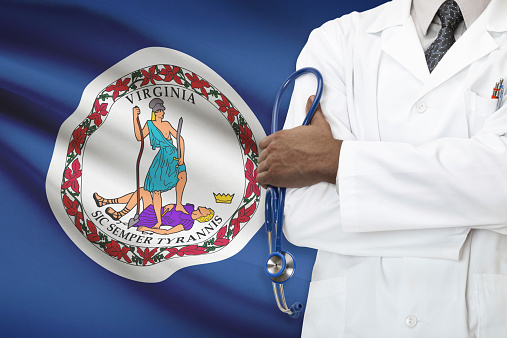A bill that would protect patients and doctors who enter into direct primary care agreements passed the Virginia House and Senate with bipartisan support and awaits Gov. Terry McAuliffe’s (D) signature on or before April 15.
Direct primary care allows patients to pay a physician a flat fee every month in exchange for a defined number of office visits and medical services.
Del. Steve Landes (R-Augusta County) introduced House Bill 685 to affirm and legally establish direct primary care is not a form of health insurance, which means providers are not subject to regulation by Virginia’s State Corporation Commission or required to obtain special licensure to offer patients private physician agreements.
The House of Delegates unanimously passed the bill on February 3. The Senate passed it narrowly, by a 23–17 vote, on March 9. The House approved the Senate version 87–8.
Money in the Middle
Landes told Health Care News direct primary care is “more efficient and cost-effective for the patient” because it “provides needed choice for the patient to work and contract directly with his or her doctor.”
“Direct primary care is not insurance and therefore takes the middleman out of the health care system,” Landes said.
The flexibility of the direct-pay model gives patients and doctors an advantage insurance programs do not, Landes says.
“A direct primary care agreement can be scaled to provide as much [coverage] as the patient can afford or want,” Landes said. “[It] would provide an important option for individuals with high-deductible plans or small businesses that may want to provide this as a benefit for employees.”
Insurers Balk
Michael W. Thompson, chairman and president of the Thomas Jefferson Institute for Public Policy, says the health insurance industry slowed the bill’s progress in the Senate.
“After the House vote, the insurance companies weighed in during the Senate session,” Thompson said. “They did not rabidly oppose it but asked for more time, saying, ‘We’re not sure, do we really need this in the state?'”
McAuliffe has said he would support health care reform efforts, but Thompson says the governor’s idea of reform may be limited to Medicaid expansion, which McAuliffe has repeatedly proposed and lawmakers have rejected.
Thompson says he expects McAuliffe to sign the bill, possibly with line-item modifications, then return it to the legislature for its Veto Session, typically a one-day meeting of both chambers, this year scheduled for April 20.
“Hopefully, the governor will sign it,” Thompson said. “Direct primary care did not seem to create a lot of emotional angst [in either chamber.]”
Ben Johnson ([email protected]) writes from Stockport, Ohio.
Internet Info:
Matthew Glans, “Virginia Should Remove Barriers to Direct Primary Care,” Research and Commentary, The Heartland Institute, March 1, 2016: https://heartland.org/policy-documents/research-commentary-virginia-should-remove-barriers-direct-primary-care
Image via Thinkstock




